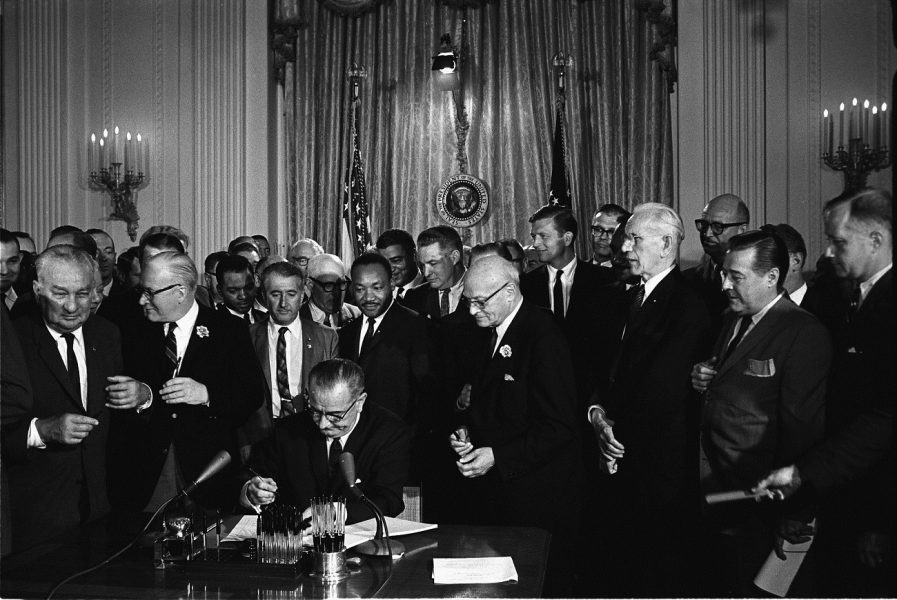A Different Look at Martin Luther King, Jr.’s Dream
Michael Wayne—
On the anniversary of Martin Luther King’s birthday, media outlets across the country will be running excerpts from his famous “I Have a Dream” speech delivered at the March on Washington. Let’s look at a somewhat different version of his dream, this one presented at the annual convention of the AFL-CIO, in Miami Beach, a year and a half before he spoke from the steps of the Lincoln Memorial. He looked forward “confidently”, King said on that occasion,
to the day when we shall bring into full realization the dream of our American democracy—a dream yet unfulfilled. A dream of equality of opportunity, of privilege and property widely distributed; a dream of a land where men will not take necessities from the many to give luxuries to the few, a dream of a land where men do not argue that the color of a man’s skin determines the content of his character; a dream of a nation where all our gifts and resources are held not for ourselves alone but as instruments of service for the rest of humanity; the dream of a country where every man will respect the dignity and worth of all human personality—that is the dream.
Familiar themes from the March on Washington speech are here: faith in the promise of American democracy, anticipation of a day when skin color will not be read for “the content” of “character.” But there is also a theme that King left unmentioned when he spoke on the steps of the Lincoln Memorial: “Privilege and property” will be “widely distributed.”
Since the Civil Rights Era, unprecedented opportunities have opened up for black Americans of education and means. Beyond the election of Barack Obama and the appointment of blacks to high-ranking government positions, there are now black partners at the most prestigious Wall Street law firms, black surgeons at the leading American hospitals, and black professors with endowed chairs at Ivy League universities. Black executives have headed the Ford Foundation, the College Board, Fannie Mae, and major corporations such as Time Warner, American Express, Merrill Lynch, Merck, Xerox, and Beatrice Foods. But consider the fate of those blacks William Julius Wilson has termed the “truly disadvantaged”:
Following the Civil Rights Era, the percentage of black families living below the poverty line rose dramatically, especially in the cities of the North and Midwest devastated by the flight of industry. Between 1975 and 1992, the average income of the poorest one-fifth of black families in the United States declined by 33 percent. And increasingly for many inner city blacks, poverty has become an inescapable condition. Furthermore, many urban centers with significant black populations have fallen victim to what the sociologists Douglas Massey and Nancy Denton have termed “hypersegregation,” an extreme form of residential segregation. In 1980, 16 metropolitan areas were hypersegregated for blacks. A decade later, that figure had risen to 29, where it remained in 2000. Among the cities in which blacks experienced hypersegregation at the turn of the century were Los Angeles, Chicago, Detroit, Cleveland, and Buffalo. Southern cities too: Atlanta, Houston, and Miami.
Return to King’s dream as he described it at the AFL-CIO convention: “Privilege and property” will be “widely distributed.” At a time when inequality in the United States has reached heights unseen since the Gilded Age, his vision must seem hopelessly utopian. But the truth is—a truth King certainly understood—if America is ever truly to become a “post-racial” society it will have to eliminate the class inequality in racial guise created by slavery and perpetuated in other forms once slavery was abolished. Beyond that, it can hardly be doubted that if America is ever to fulfill the promise of liberty and equality articulated in the Declaration of Independence, there will have to be a radical restructuring of the existing social order. The author of that document himself believed that the survival of the new republic depended on the wide distribution of property. Thomas Jefferson advocated a highly progressive tax system to prevent the growth of inequality. Of course, unlike King, Jefferson did not champion eliminating class exploitation as a necessary step to destroying race prejudice. In his vision of the American future, there would be no black landowners. But the fact that Jefferson’s vision was clouded by white supremacist assumptions should not prevent us from recognizing that he and Martin Luther King, Jr. shared a fundamental conviction: All citizens need to have a propertied stake in the society. The gravest internal threat to the full realization of liberty in America—and here I mean the gravest threat to the liberty of all citizens, regardless of race—is the concentration of power and privilege in the hands of a few.
Michael Wayne is professor emeritus, History Department, and fellow, University College, University of Toronto. He is the author of Imagining Black America.
Further Reading:
























